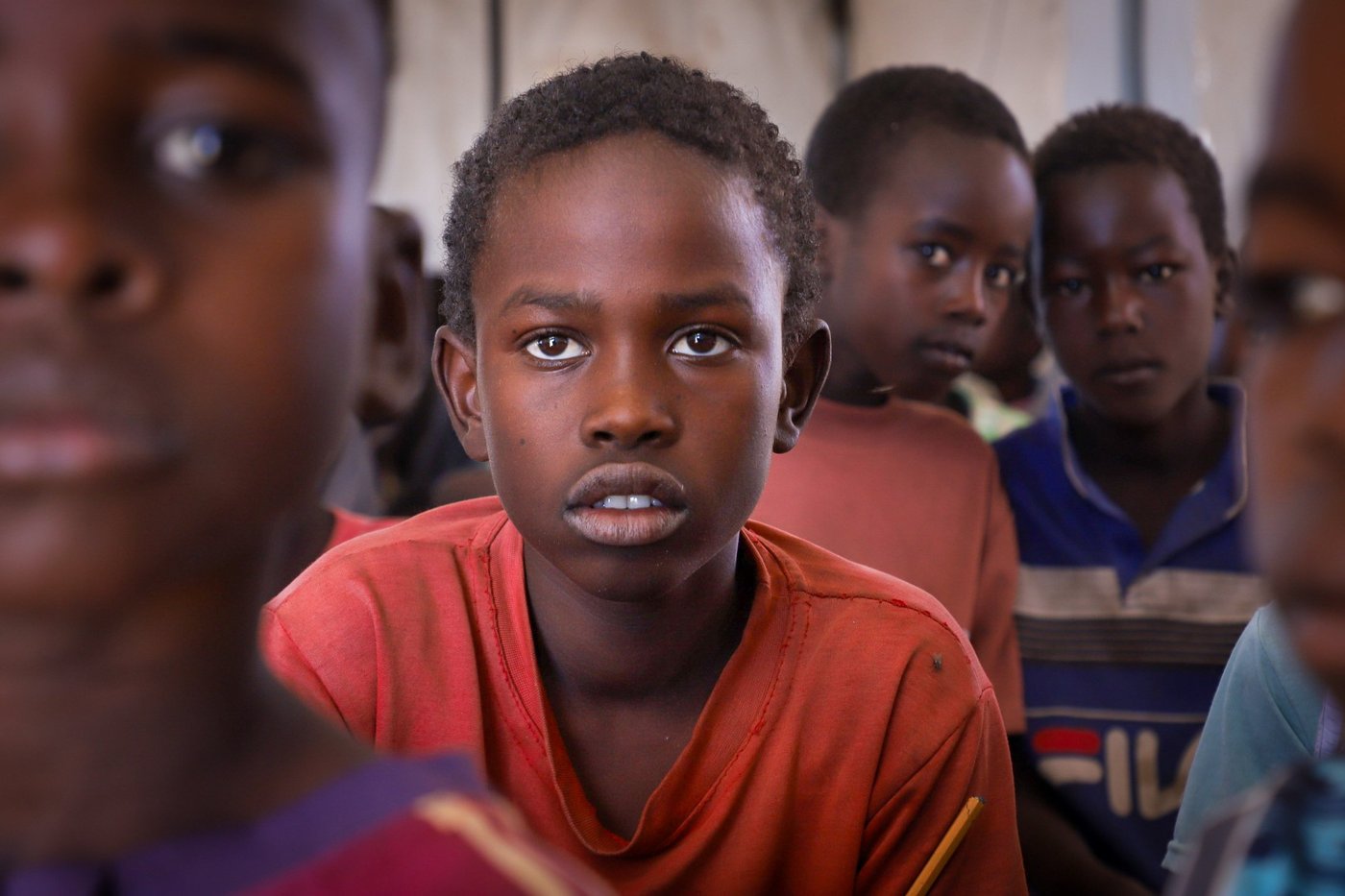Children are reaching Tawila exhausted and deeply distressed, often after days of walking through the desert. Many arrive terrified of the armed groups they fled from or might have encountered on the road. Many became separated from their parents during the chaos of flight, while others’ parents are believed to have gone missing, been detained or killed.
Nidaa, a teacher with NRC’s education programme, said: “When we first started our classes, some of the children could not speak at all when they arrived. Others were waking up with nightmares. Many witnessed extreme violence before escaping and are showing signs of acute trauma. They describe hiding for hours, travelling at night to avoid attacks, and becoming separated from family in the chaos.”
One month since the attacks on Al Fasher began on 26 October, NRC has registered more than 15,000 newly arrived people in Tawila and is enrolling over 200 children each day, on average, in emergency education across two sites. But after harsh and dangerous journeys, many are still sleeping outdoors without shade, bedding or warm clothing as night temperatures drop.
Some of the children who have arrived without their parents are being hosted by extended relatives, neighbours or even strangers. Yet even while hosted, many continue to wait and hope to hear from their parents.
“In our classes, we spent days encouraging them to play, sing, breath, and relax, and we are now seeing small but important improvements,” Nidaa said.
Despite the scale of needs, NRC teams report early signs of relief in these learning tents. Drawings that once showed military vehicles and weapons now feature flowers and volleyball courts, as children slowly reconnect with a sense of safety and routine.
“There is an urgent need to scale up support for the people who have arrived in Tawila. Children who arrived traumatised, unprotected and without shelter are at extreme risk.
They have already escaped mass atrocities and we cannot fail them now,” said Noah Taylor, NRC’s Head of Operations in Sudan. At least 100,000 people have fled Al Fasher and surrounding villages since 26 October, while tens of thousands of others remain unaccounted for. “We are deeply concerned about the fate for the thousands of people from Al Fasher who remain unaccounted for,” Taylor added.
Notes to editors:
- We have spokespeople in Sudan and the region available for media interviews.
- New B-roll and photos from Tawila can be downloaded from here for free use and distribution.
- In Tawila, NRC is expanding safe spaces for children, emergency education and psychosocial support; providing cash assistance to families; and supporting local responders to deliver water, food and operate 10 communal kitchens.
- At least 100,000 people have fled Al Fasher and surrounding villages since 26 October. Tens of thousands of others remain unaccounted for.
- NRC has registered over 15,000 newly arrived people in Tawila since 26 October. Since March this year, about half a million displaced people have arrived in Tawila, according to the UN.
For more information or to arrange an interview, please contact:
- Karl Schembri, media adviser in Nairobi: karl.schembri@nrc.no, +254 741 664 562
- NRC’s global media hotline: media@nrc.no, +47 905 62 329


